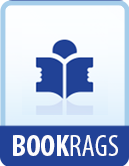“Books can only be profoundly influential as they unite themselves with decisive tendencies.” Provide the right conditions for mental growth, and then let the child do the growing. If we dictate too absolutely, we envelop instead of developing his mind, and weaken his power of choice. On the other hand, we do not wish his reading to be partial or one-sided, as it may be without intelligent oversight.
I was telling bedtime stories, the other night, to a proper, wise, dull little girl of ten years. When I had successfully introduced a mother-cat and kittens to her attention, I plunged into what I thought a graphic and perfectly natural conversation between them, when she cut me short with the observation that she disliked stories in which animals talked, because they were not true! I was rebuked, and tried again with better success, until there came an unlucky figure of speech concerning a blossoming locust-tree, that bent its green boughs and laughed in the summer sunshine, because its flowers were fragrant and lovely, and the world so green and beautiful. This she thought, on sober second thought, a trifle silly, as trees never did laugh! Now, that exasperating scrap of humanity (she is abnormal, to be sure) ought to be locked up and fed upon fairy tales until she is able to catch a faint glimpse of “the light that never was on sea or land.” Poor, blind, deaf little person, predestined, perhaps, to be the mother of a lot of other blind, deaf little persons some day,—how I should like to develop her imagination!
Whatever children read, let us see that it is good of its kind, and that it gives variety, so that no integral want of human nature shall be neglected,—so that neither imagination, memory, nor reflection shall be starved. I own it is difficult to help them in their choice, when most of us have not learned to choose wisely for ourselves. A discriminating taste in literature is not to be gained without effort, and our constant reading of the little books spoils our appetite for the great ones.
Style is a matter of some moment, even at this early stage. Mothers sometimes forget that children cannot read slipshod, awkward, redundant prose, and sing-song vapid verse, for ten or twelve years, and then take kindly to the best things afterward.
Long before a child is conscious of such a thing as purity, delicacy, directness, or strength of style, he has been acted upon unconsciously, so that when the period of conscious choice comes, he is either attracted or repelled by what is good, according to his training. Children are fond of vivacity and color, and love a bit of word painting or graceful nonsense; but there are people who strive for this, and miss, after all, the true warmth and geniality that is most desirable for little people. Apropos of nonsense, we remember Leigh Hunt, who says that there are two kinds of nonsense, one resulting from a superabundance of ideas, the other from a want of




